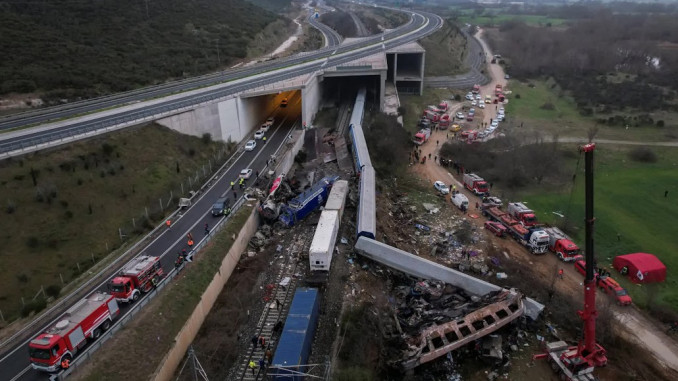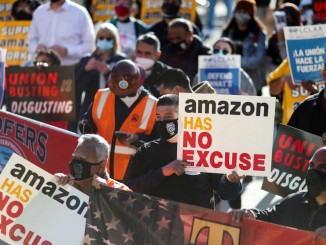
The head-on collision of two trains traveling opposite directions on the same track in Larissa, Greece has led to the deaths of at least 57 people. Eighty-five more were injured. Meanwhile, 50 people are still unaccounted for after the disaster.
Automatic signaling at the crash site was not working, due to not being properly maintained. This technology reduces rail costs and increases the number of trains that can travel at one time. But one person interviewed by Al-Jazeera said that it is normal for train drivers and station masters in Greece to ignore the signals because they malfunction so frequently. Whatever happened, it is clear that this technology is critical to the safety of train passengers, workers and cargo. There is no excuse for it malfunctioning, or for its warnings to be ignored.
The rail union also cited short staffing as a reason that safety regulations were overlooked, saying, “There should be 2,100 workers on the railroad when today there are 750 people who serve it all over Greece.” But Greece’s 2009 financial crisis, aggravated by the European Union’s sanctions to enforce austerity, led to drastic budget cuts for the rail system. In fact, in 2017, the rail system was privatized, making profits, not safety, the driving force in railroad planning and investment.
After this catastrophe, railway workers nationwide walked off the job to protest the unsafe conditions. More than 2,000 people gathered in Athens, the capital of Greece, to express their grief and rage, and to protest this gross dismissal of the value of human lives.
This tragedy in Greece comes not even a month after a rail crash in East Palestine, Ohio, which led to the spill of hazardous materials, including the dangerous carcinogen vinyl chloride. This has led to the death and contamination of much of the wildlife in the environment surrounding the town. Some human residents are still experiencing worrying symptoms, like shortness of breath and rashes. And it’s been clear that poor regulation by government, which supports the railroads’ profiteering, is at the root of the problem.
In the U.S., more than 12 trains had already derailed in 2023 before the East Palestine calamity. Another freight train derailed elsewhere in Ohio on March 4. As of this writing, we don’t know what the environmental damage might be. But this raises the question: when will another one cause a disaster?
As long as essential services, like rail transportation, are run by and for private profiteers, that is, the One Percent, the rest of our lives are at risk when we ride on a passenger train or when a freight train rolls through our communities.




